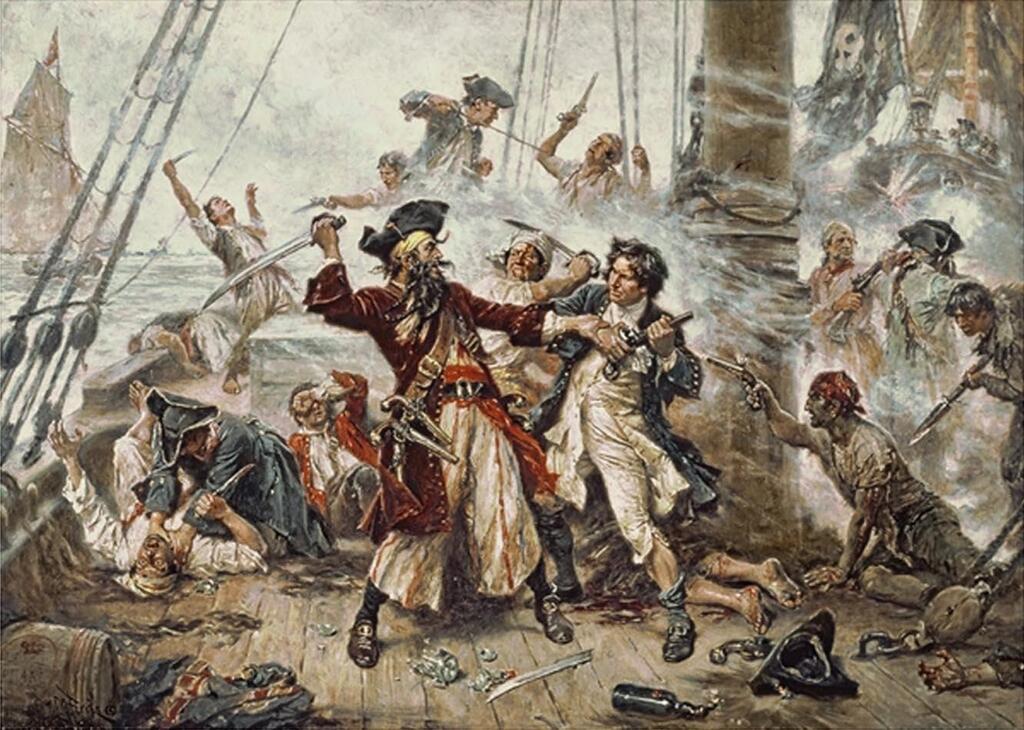Kosher swashbuckling: the tale of the Jewish pirate
What began with a couple of missiles toward Eilat has in recent weeks escalated into a serious problem. Yemeni pirates, Houthis, attempting to impose a naval blockade on Israel. It's a great opportunity to recall a different time when Jewish pirates fought not for money but for ideology, a distinctly Jewish one! Hear me out.
More stories:
The year is 1628, and two infamous pirates set out from Jamaica to plunder Spanish treasure ships on their way home, laden with precious metals. One of them was a Jew named Moses Cohen Henriques, or simply Moshe Cohen if you will — a kosher Jewish pirate persecuted by Spanish authorities due to his heritage. Surprisingly, Henriques was already extraordinarily wealthy, so why did he risk himself to raid Spanish ships?
Rewinding to 1492, a decree to expel Jews from Spain was signed after a long period of persecution and various restrictions imposed on Jews who refused to convert to Christianity. Many Jews, including those forcibly converted but secretly practicing their faith and those who refused conversion, had to flee as far as possible.
Some found refuge in Brazil, then a Portuguese colony, believing that the Inquisition's reach wouldn't extend to such distant colonies. They were mistaken; the Inquisitors gradually expanded their activities to the colonies, and it seemed the Jews in Brazil were doomed.
However, salvation came from an unexpected place. In 1509, the Dutch provinces, under Spanish rule, rebelled against King Philip II of Spain. As part of the war, the Dutch conquered Spanish and Portuguese colonies, including the temporary capture of Salvador de Bahia, the then-capital of Brazil, by a group of Dutch merchants and privateers known as the "Dutch West India Company."
And back to Cohen Henriques, over a century may have passed since the expulsion decree, but the Jewish pirate's heart still harbored a desire to avenge the Spanish hijos de puta who banished his ancestors from their homeland. Our very Moshe was there to serve his revenge cold.
2 View gallery


The capture of the famous pirate Blackbeard took place in 1718
(Photo credit: 1920 PAINTING BY JEAN LEON GEROME FERRIS /WIKIMEDIA COMMONS)
He joined forces with Piet Hein, the principal admiral of the Dutch West India Company. The two received information about a huge silver cargo being transported by the Spanish fleet from America to Europe. Our pal Henriques was the brilliant mind behind the daring takeover of the fleet. The loot amounted to what would be around a billion dollars in today’s money.
Unlike the Spaniards, the Dutch had a more liberal attitude toward Jews, and under their rule, the Jewish community in Brazil flourished. Meanwhile, Moses Cohen Henriques (excuse me, Moshe Cohen) established his own pirate island off the coast of Brazil, where Jews could live freely (and maybe too freely, it’s a pirate island after all). Rum, pirates, a synagogue, a tropical land and an abundance of women made it a paradise that lasted until about 1654 when the Portuguese regained control, bringing the Inquisition with them.
So, the next time you hear about Houthi pirates attacking another ship en route to Israel, raise a glass of rum in memory of Moshe Cohen Henriques, the Jewish pirate.






